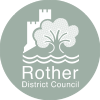Below is a summary of activity from 1st April 2024 – 31st March 2025, which contributed to the objectives of the Climate Strategy.
The Climate Strategy aims to reduce emissions from buildings, transport, and resource consumption & waste, whilst enhancing biodiversity and promoting clean energy generation to provide opportunities for nature recovery, carbon sequestration and avoiding emissions.
The current Climate Strategy and Action Plan were adopted in December 2023. This is therefore the first full annual round-up of the Council’s progress in meeting the objectives of the Climate Strategy.
Buildings and Energy Efficiency
Objective 1: The built environment will be low carbon and climate resilient.
- We accessed government funding to decarbonise private housing
Working jointly with other local Councils, the energy performance and heating systems of 50 low income, off gas homes in East Sussex was improved, funded by the Home Upgrade Grant Round two. A further 52 properties are due to benefit from this funding.
Following another successful joint bid, Warm Homes Grant funding has been awarded for energy performance upgrades and installing low-carbon heating to low-income households living in the worst quality, privately rented homes in East Sussex. This project will begin in April 2025.
- We worked with partners to engage and educate residents, run community events and train Energy Champions to support housing retrofit
The Council engaged with Town and Parish Councils to encourage them to declare a climate emergency and develop local action plans. A range of events were promoted for residents, delivered by Energise Sussex Coast, including a series of energy and retrofit roadshows, Eco-open Homes and further Energy Champions training.
- We supported the development of local retrofit skills
A skills audit was published in October 2024, recognising Net Zero as a cross-cutting theme. As a result, the Council will establish the Rother Skills Forum in 2025, to bring together local education and employment providers to meet Rother’s needs.
The East Sussex Retrofit Skills Plan was supported through membership on the Housing Partnership Board, Energy Partnership Board and via the Climate Officer network. In February 2025, Public Health announced this plan would form a strand of a new Housing Retrofit Strategy for East Sussex. The Council is engaged in shaping this strategy through co-design workshops.
- We funded energy efficiency measures for community assets and businesses
A range of grants were awarded to community groups and businesses via the Reduce, Reuse, Recycle Community Grants, Village Halls Energy Project, the Rural England Prosperity Fund, Rural Business Grants and Net Zero 360. Awards paid for LED lighting, replacement glazing & doors, wall & roof insulation and energy efficient equipment.
Transport
Objective 2: The need to travel will be reduced, those that do will be on foot, bike, public transport, or in a low/zero carbon vehicle.
- We worked with partners to shape transport policy.
The Council participates in local transport groups and consultations wherever possible to ensure Rother’s transport needs are considered. For example, responding to Transport for the South East’s draft Transport Strategy consultation in March 2025.
The Council monitors the air quality in our district and the latest report in June 2024 reported that all levels were within range of DEFRA Air Quality Objectives. The Council is a member of Sussex Air and maintains contact with other Local Authorities working to improve air quality.
- We supported community groups and businesses to switch to electric vehicles (EVs) and install EV chargepoints (EVCPs).
Rural Business Grants were awarded to two organisations to install EVCPs in their car parks for staff and visitors. One company was also awarded a grant to purchase an electric van. A series of informational events for businesses, including information on the decarbonisation of fleet vehicles, were run by the Net Zero 360 project.
- We’re encouraging residents to switch to electric vehicles.
The Council procured a provider to install and operate EVCPs in six public car parks, supported by funding from the On-street Residential Chargepoint Scheme. The EVCPs are expected to be installed by December 2025.
The Council has been working in partnership with other Councils across Sussex, led by West Sussex County Council, to prepare to run another collective group purchase scheme for solar, EVCPs and potentially other renewable technologies. This is expected to launch in 2025/26.
- We’re building a Carbon Literate Organisation.
Carbon Literacy workshops for officers are delivered on a quarterly basis. In June 2024, the Council was awarded Bronze Carbon Literate Organisation (CLO) status in recognition of our progress, and by the end of March 2025, had trained 34% of our staff. We are on track to achieve Silver CLO status in 2025/26.
The Green Team raise awareness of climate issues internally, and completed the annual staff commuter survey in May 2024 to monitor commuting trends and emissions. New staff benefits have since been explored that promote the switch to EVs and public transport, and the Council expects to launch these in 2025.
Resource Consumption and Waste
Objective 3: The district will produce less waste and support a thriving circular economy.
- We encouraged reduced waste, and increased re-use and recycling of resources
A series of informational events for businesses, including information on reducing emissions through resource and waste reduction, were delivered by the Net Zero 360 project.
Reduce, Reuse & Recycle Grants were awarded to community groups to introduce a reusable cup deposit/return scheme, and a community food waste composting scheme.
We promoted waste reduction initiatives to residents and businesses, like local Repair Cafes, Plastic Free July and Zero Waste Week, through the My Alerts and My Business Alerts emails.
Following an internal waste audit, to encourage recycling in our offices, under-desk general waste bins were removed, the number of recycling bins was increased and soft plastics recycling was introduced. A virtual staff marketplace was also created for our officers, where work-related or personal items can be offered or requested.
- We reviewed and improved our decision and procurement processes
Since April 2024, the Carbon and Co-Benefits Decision Support Tool has been included in all relevant reports submitted to the Overview and Scrutiny Committee and to Cabinet. The tool provides senior decision makers with a clear and concise summary of how projects and policies impact across a range of areas, including climate and environment, equality and inclusion, health, economy, housing and mobility.
The Council’s procurement services are provided by the East Sussex Procurement Hub. We, along with the other Councils they serve, collaborated with them to create a new Sustainable Procurement Policy to strengthen the existing Procurement Strategy. This was drafted in March 2025, and it is expected that the policy will be adopted by the Council in the coming year.
- We promoted sustainable food practices
The Council is a member of the Rother Food Partnership, which met in January 2025 to frame their strategic goals, which include, amongst others, reducing food waste, supporting local producers and promoting sustainable food production and consumption.
Peasmarsh Parish Council received a Rural Community Spaces Improvement Grant for £10,000 from the Council to create a community allotment, funded by the Rural England Prosperity Fund.
10 community orchards were planted by Town and Parish Councils and community groups, via funding awarded by the Council from DEFRA’s Coronation Living Heritage Fund. A second round of Community Orchard Grant funding is due to open in 2025/26.
Biodiversity and Land Use
Objective 4: Nature will be in recovery across the district.
- We worked with partners to improve the health of water environments and land management practices
The Council is a formal partner of the South East Rivers Trust’s Rother and Romney Catchment Partnership, including the Combe Valley Catchment sub-group, and the Cuckmere and Pevensey Catchment Partnership. These partnerships deliver projects to conserve and improve the health of the water environments and protect, restore and create wildlife habitats. The Council also sits on the working group for the Local Nature Recovery Strategy (LNRS) as a supporting authority. (A public consultation on the draft LNRS is expected to open in the Summer of 2025 ahead of it being adopted later in the year.)
In February 2025, the Council attended Strandliner’s annual Love Our Rother event, with the theme this year being water quality. The Council also supported local biodiversity groups with advice on writing and funding biodiversity plans.
- We audited and improved Council owned land for nature
23 of the Council’s larger rural sites were audited by Ecologists to provide a baseline for biodiversity and to generate recommendations on how to improve the management of these areas for nature.
Two micro woods were planted through community tree planting days, utilising funding awarded by DEFRA’s Coronation Living Heritage Fund. One micro wood is in Coronation Gardens rec, Battle, the other is in Mason’s Field, Rye.
Energy Generation
Objective 5: Renewable energy will be produced locally.
- We funded community groups and businesses to install solar panels.
Seven village and community halls were awarded grant funding towards solar panels and/or solar batteries through the Village Halls Energy Project. The Net Zero 360 and Rural Business Grants programmes additionally awarded funding for rooftop solar panels to four Rother businesses, plus a grant to an events company to replace a petrol generator with one that is solar-powered.
- We supported community energy projects.
Three of the solar projects that received grant funding by the Council, as mentioned above, are being delivered by the local community energy cooperative, Energise South.
- We worked with partners to explore heat demand mapping opportunities
Officers continued to work closely with partners and neighbouring local authorities to keep up to date with the latest developments in heat demand mapping. Previous plans to begin developing a Local Area Energy Plan for East Sussex were postponed this year when details of emerging technical platforms to be delivered by the Greater South East Net Zero hub were shared, which, once available, could save authorities thousands of pounds in technical and consultancy fees.

